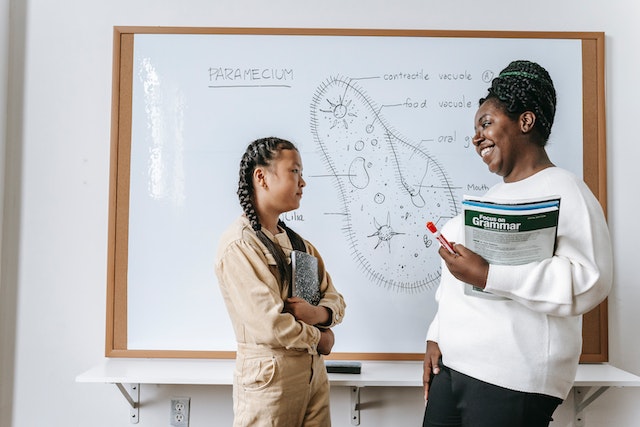What exactly are participles and how will we recognize them? Let’s take a look. Participles is a short topic and concept but it has great importance in the English language.
MEANING OF ENGLISH PARTICIPLES
According to the Merriam-Webster dictionary, Participles are words that have characteristics of both a verb and an adjective. Words like written, played, read, understood are examples of English participles.
The English language comprises three types of participles, namely the PRESENT PARTICIPLE, PAST PARTICIPLE and the PERFECT PARTICIPLE. Participles are amazing and exciting to use. What happens is that one minute you use them as verbs and the next moment they become an adjective. At times it may seem a bit difficult to know where to use participles, but don’t worry, here we have explained each type of participle with some amazing examples.
TYPES OF ENGLISH PARTICIPLES
PRESENT PARTICIPLE
The simplest way you could define a present participle is by looking if the VERB ends with-ing. Yes, the present participle would be a verb that would end with ‘ing’. Words like flowering, watering, eating, drinking, etc. Are nothing but participles. Isn’t that easy to tell? It might seem hard to believe but these words are present participles. You must have come across such words but you couldn’t recognize them at that time, but now you are very well aware of them! Participles can have different functions in the sentence. Depending on the situation, the same word can be functioning in various different ways.
For eg:
- We are drinking water.
- They were watching a movie all night.
- He is walking.
PAST PARTICIPLE
The form of a verb that ends in -ed (regular verb) or in letters like ‘-t’ or ‘-en’ (irregular verb) is known as past participles. You must have come across past participles many many times. As a result, verb forms like understood, thought, eaten, lived are examples of past participles. Past participles are used to form all the perfect tenses. Perfect tenses are a form of auxiliary to have+past participle.
For eg:
- She had started when it was over.
- We will have received it at that time.
- I have played it.
PERFECT PARTICIPLE
Perfect participle is not difficult to understand. It is formed by using the present participle having and the past participle of another verb. For eg, having taped, having departed, having beaten, and much more like this. Perfect participle refers to a past action that was completed before the action of the main clause has taken place.
For eg:
- Having taped his audio, he published it.
In this sentence, the person first taped the audio and then he/she published it.
- Having completed his work, he went to a party.
Here, the person first completed his work and later he went to a party.
Perfect participles describe past actions, it is majorly used in perfect participle phrases in order to talk about actions that took place before the action of the main clause. Depending on what we want to say, the perfect participle can even appear in active or passive voices.
With this, now you know what are participles and how to use them in which type of sentences. Participles are much more common than you must have even thought about it. Using participles makes the message you want to deliver much clear and precise. It is not difficult to use though. It will come more naturally to you if you practice more such types of participles and its constructions.
Quiz on Participles














